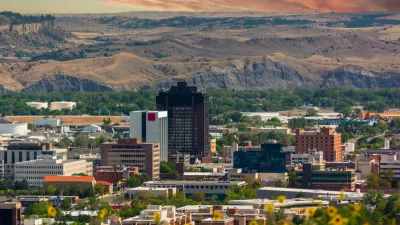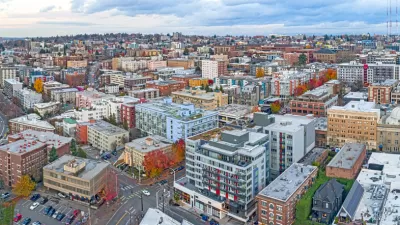As more cities eliminate or reduce their minimum parking requirements, the impact on housing supply is coming into focus.

Evidence from cities that have reduced or eliminated parking requirements shows that the changes have led to new housing construction — the expected outcome for many parking reform and housing advocates who say unnecessary parking minimums drive up the cost of housing, limit development on smaller lots, and induce sprawl.
According to an article by Martha C. White in The New York Times, “A 2022 study by the Regional Plan Association, a nonprofit group focused on the New York City area, found that more low-income housing was built in city neighborhoods where parking requirements were reduced.” In Seattle, 60 percent of new development after parking reform would not have been possible under the city’s old regulations.
Despite concerns about not having enough parking, the availability of parking is often about management rather than quantity. “Housing advocates, developers and urbanists harboring visions of less car-centric cityscapes say the rules have little to no bearing on actual demand for parking.” Moreover, removing parking minimums doesn’t prevent developers from building as much parking as they believe is needed.
FULL STORY: What Happens When There Are Fewer Spaces to Park?

Planetizen Federal Action Tracker
A weekly monitor of how Trump’s orders and actions are impacting planners and planning in America.

Maui's Vacation Rental Debate Turns Ugly
Verbal attacks, misinformation campaigns and fistfights plague a high-stakes debate to convert thousands of vacation rentals into long-term housing.

San Francisco Suspends Traffic Calming Amidst Record Deaths
Citing “a challenging fiscal landscape,” the city will cease the program on the heels of 42 traffic deaths, including 24 pedestrians.

Amtrak Rolls Out New Orleans to Alabama “Mardi Gras” Train
The new service will operate morning and evening departures between Mobile and New Orleans.

The Subversive Car-Free Guide to Trump's Great American Road Trip
Car-free ways to access Chicagoland’s best tourist attractions.

San Antonio and Austin are Fusing Into one Massive Megaregion
The region spanning the two central Texas cities is growing fast, posing challenges for local infrastructure and water supplies.
Urban Design for Planners 1: Software Tools
This six-course series explores essential urban design concepts using open source software and equips planners with the tools they need to participate fully in the urban design process.
Planning for Universal Design
Learn the tools for implementing Universal Design in planning regulations.
Heyer Gruel & Associates PA
JM Goldson LLC
Custer County Colorado
City of Camden Redevelopment Agency
City of Astoria
Transportation Research & Education Center (TREC) at Portland State University
Jefferson Parish Government
Camden Redevelopment Agency
City of Claremont





























